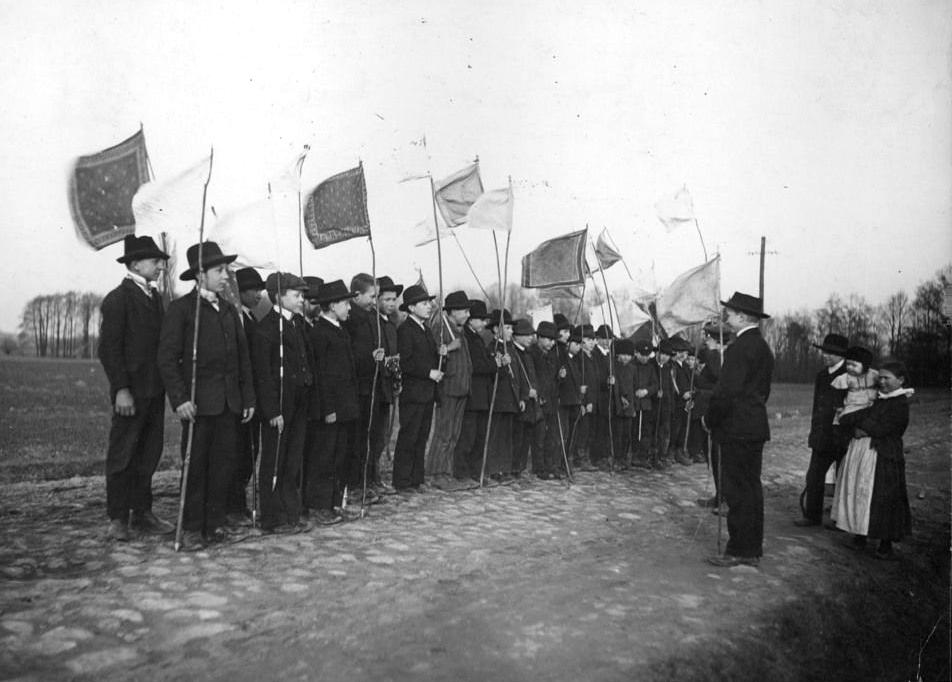
Figure 1.--Poland when World War I began did not exist as a country, but Poles certainly did exist. And a great debate began among Polish nationalists as to which side would be better for Poland. Here is a group of youths in the German-controlled area of Poland. They are too young for military service, but are demonstrating patriotic fervor. Notice they are not showing German flags, but they dare not raise aolish flag yet. The German caotion read, "Das auch die polnische Jugend die Kriegsbegeisterung erfasst, wird uns in dieem Bild vergegenwärtigt. In ermangelung von Fähnchen haben sie ihre mehr oder weniger bunten Taschentücher an eine Haselrute gebunden, um so ihren sonntäglichen Vergnügungen, den kriegsspielen, nachzugehen." That translates as something like, "The Polish youth also captured the enthusiasm of the war is brought to light in this picture. In the absence of flags, they have tied their more or less colorful handkerchiefs to branchest, in order to pursue their sonorous pleasures, the war-playing." |

